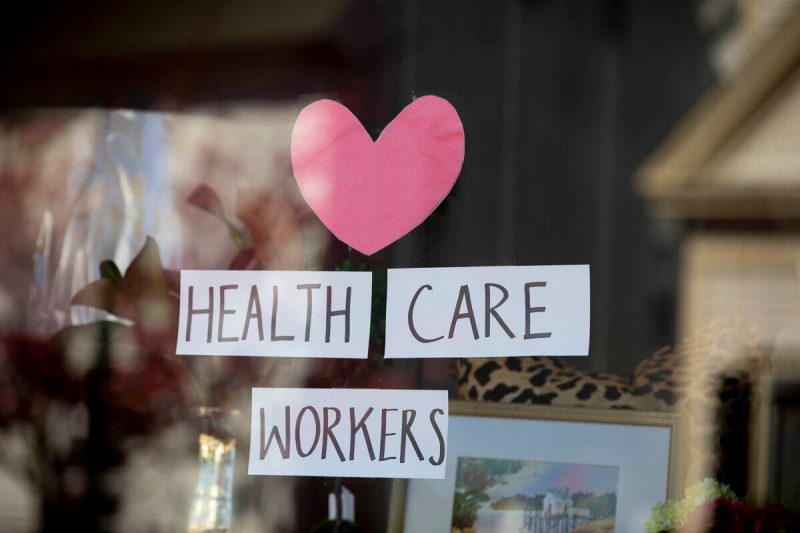Lessons from a Pandemic: Building Resilience and Unity
The outbreak of the COVID-19 pandemic in 2020 has brought unprecedented challenges to individuals, communities, and nations across the globe. As the world grapples with the devastating impacts of this infectious disease, valuable lessons have emerged that shed light on the importance of resilience and unity in navigating crises of this magnitude. This article aims to highlight the key lessons we can learn from this pandemic and how they can shape a more resilient and united future.
Lesson 1: Global Interconnectedness
The pandemic has exposed the interconnectedness of our world like never before. The rapid spread of the virus across borders has shown that problems in one part of the world can have far-reaching consequences. We have learned that we are all in this together and that cooperation and information sharing are paramount in mitigating the effects of a pandemic. In the future, it is essential that countries work together, setting aside political differences, to strengthen global health systems and respond effectively to future health crises.
Lesson 2: The Importance of Preparedness
The COVID-19 pandemic has made it abundantly clear that preparedness is crucial in dealing with any crisis. In the face of this unexpected challenge, countries with robust healthcare systems, adequate medical supplies, and efficient emergency response mechanisms were able to manage the situation more effectively. Moving forward, investment in preparedness measures, such as stockpiling essential medical equipment and establishing early warning systems, must be prioritized to mitigate the impact of future pandemics.
Lesson 3: The Power of Technology
The pandemic has accelerated the adoption of technology in unprecedented ways. From remote work and virtual learning to telemedicine and contact tracing apps, technology has proven to be a valuable tool in combating the spread of the virus. We have learned that technology can bridge gaps, facilitate communication, and enable continuity in various sectors. Harnessing the potential of technology should remain a focus as we prepare for future challenges, ensuring that everyone has access to these advancements and that digital infrastructure is robust and reliable.
Lesson 4: The Resilience of Communities
The pandemic has highlighted the resilience and ingenuity of communities around the world. From frontline workers risking their lives to essential service providers adapting to new challenges, communities have come together to support one another. Acts of kindness, solidarity, and charity have demonstrated the power of compassion in times of crisis. Moving forward, community resilience should be fostered and supported through initiatives that promote social cohesion, strong local networks, and access to crucial support systems.
Lesson 5: Prioritizing Mental Health
The mental health toll of the pandemic cannot be overlooked. The prolonged isolation, fear, and uncertainty have taken a significant toll on individuals globally. As a society, we must recognize the importance of mental health and prioritize resources to address the psychological impact of crises. Promoting open conversations, expanding access to mental health services, and implementing policies that support well-being are essential steps towards building resilient individuals and communities.
Lesson 6: Sustainable Systems for a Sustainable Future
The disruption caused by the pandemic has highlighted the need for resilient and sustainable systems. From healthcare to food production, our existing systems were stretched and, at times, unable to meet the demands of the crisis. Moving forward, we must prioritize the development of sustainable systems that can withstand shocks, ensure equitable access to resources, and promote environmental stewardship. Emphasizing sustainable practices, renewable energy, and responsible consumption can create a more resilient and equitable world.
Lesson 7: Learning from Mistakes
Lastly, the pandemic has illuminated the importance of learning from past mistakes. Identifying shortcomings in our crisis response, communication strategies, and healthcare systems is crucial to improving our future response efforts. Governments, organizations, and individuals must conduct thorough evaluations, adapt procedures, and implement necessary changes to ensure that history does not repeat itself. Reflecting on our mistakes and applying those lessons learned is vital in building a more resilient and united society.
In conclusion, the COVID-19 pandemic has tested the resilience and unity of nations worldwide. However, in the face of this crisis, valuable lessons have emerged. Global interconnectedness, preparedness, technology, community resilience, mental health prioritization, sustainable systems, and learning from mistakes are all key takeaways from this extraordinary time. By implementing these lessons, we can move forward with a renewed sense of unity and resilience, better equipped to tackle future challenges and create a brighter and more united future for all.

